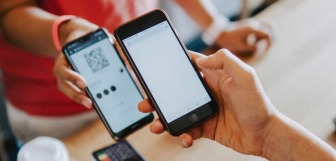QR Codes for contact tracing Mandatory in NSW venues
From 23rd of November, it will be mandatory for New South Wales venues to use QR codes for contact tracing purposes.
The New South Wales Premier, Gladys Berejiklian, announced the news on Wednesday, November 4th, confirming to hospitality businesses that QR code contact tracing will be compulsory. Alongside this news came the significant developement that the state will open up its borders to Victoria on the same day.
"From that day (November 23), the use of QR codes for hospitality businesses within NSW will be compulsory," said Premier Berejiklian, noting that "there is no reason why, within the next three weeks, that all businesses shouldn't have QR codes".
While contact tracing has been compulsory since NSW hospitalities reopening, venues were able to use a QR code or physically record customer details.
Venues can adopt their own, or they can go with the Service NSW QR code system — which is recommended by the government. It enables the state to get messages to customers quickly and is also compliant surrounding the data collection rules. Also, for customers, it means that they won't have to keep inputting their details into a plethora of different systems.
“We’ve created a unique, free QR code for your business that customers can scan when they visit,” reads a statement on the NSW Government website. “Customers will need to have the Service NSW app installed on their mobile to record their visit.
“It makes the check-in seamless by sending accurate customer information directly to Service NSW. This means the data does not have to be stored by the business and it is readily available for NSW Health to access if it becomes necessary.”
Accordingly, both NSW residents and visitors from elsewhere should prepare to have their phone in their hand when they head to a cafe, bar, pub or restaurant from the end of November — as you'll be needing it to register your details upon arrival.
Businesses that do not implement the technology could be fined $1000 and, in outbreak hotspots, COVID-19 marshals would be required at the door to ensure patrons have checked in.
